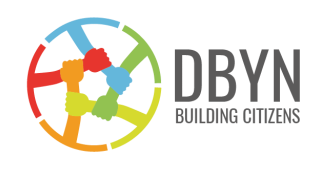0 Comments
Advocates for Education was a 6-day training course on youth advocacy, aiming at developing advocacy campaigns volunteers from DBYN's member organisations can implement in their local communities. DBYN's trainers together with the CoE's educational advisor developed a training manual including all session outlines. You can read the manual online, or scroll down for a download button.
A high level expert meeting was convened on 31 May and 1 June 2017 in Vienna by the European Union Agency for Fundamental Rights (FRA) in response to the urgent need to more effectively communicate, at every level, the fact that rights and freedoms belong to all. There is now widespread understanding that misdirected public opinion has the potential to undermine even the most firmly established institutions and instruments, and that therefore many human rights organisations are paying the price for leaving public attitudes largely unattended.
In order to communicate well with the public, institutions need to communicate unlike institutions. They must acquire qualities of speed, agility, flexibility, imagination and novelty, and experiment boldly with new approaches, especially in the rapidly evolving sphere of social media. To this end, the meeting sought to bring together an unusually wide range of disciplines and professions: journalists from both traditional and new media, including data journalists, satirists, human rights educators, NGO communications experts, visual and infographic designers, marketers and advertisers, anthropologists, epistemologists, socio-linguists and neuroscientists, as well as experts in political communication, intercultural education, data analysis and Critical Discourse Analysis. The following report is a distillation of conclusions (not formally adopted) and views, based on two days of presentations and lively debate, and combined with written and recorded contributions subsequently submitted by several experts unable to attend in person. The meeting was conducted under Chatham House rules, meaning that remarks are cited here without attribution, and none of the many sources or examples of implemented strategies suggested in footnotes or textboxes are officially endorsed by FRA; they are intended merely as signposts towards key developments in relevant academic and professional disciplines. These signposts are, however, some of the most useful and practical products of the meeting. While the meeting report we are sending you now is as such final, we nevertheless invite you to share your eventual feedback or comments on it or anything else you would like to share with us on the wider issue of effectively communicating human rights. This will allow us to incorporate your views into any future follow up of the meeting, including in any possible future related FRA publications. The report is also available on the FRA website via this link. http://fra.europa.eu/sites/default/files/fra_uploads/fra-2017-communicating-rights-expert-meeting-report_en.pdf The toolkit was developed by the Youth Forum’s Expert Group on Youth Policy, made up of representatives from the Youth Forum’s member organisations, with the aim of developing a practical tool for youth organisations to assess the quality of youth policy in their own context (whether national, local, regional or European) and to support advocacy work calling for policies that fulfill young people’s rights.
The Expert Group has identified 8 quality standards that represent good quality youth policy. For each standard there is a set of indicators that help members to comprehensively analyse the situation in their context. The toolkit is designed for members of the Youth Forum and youth organisations to use themselves and to examine and reflect on youth policies. Based on their assessment, organisations are encouraged to develop their advocacy plans in the light of what they found, in order to promote the rights of young people and, ultimately, make young people’s lives better. The European Youth Forum encourages youth organisations to continue to call for better youth policies, which support young people in the areas that affect them most. It calls for youth policies which are mainstreamed across the various sectors, such as employment, education and healthcare. The Youth Forum would also like to see policies which see young people as a solution and not a problem, and calls for young people to be involved in the policy making process, so that they are integrally involved in formulating solutions to the problems which affect them. |
- Home
- About
-
Training
- Upcoming activities >
-
Past activities
>
- Youth Guardians
- Rise: Design for emergent futures
- Mental Health in Youth Work
- Yout(h)echnology
- European School of Animators 2023
- The Future is Europe
- Voices of Youth 2022
- Educate to Elevate Youth
- SoS-Safeguarding
- Play It Covid-Safe!
- Coping over coffee
- Statement Coronavirus
- I Youth Advocate
- Camino
- European Summer School of Animators 2019
- The Journey Never Ends
- European Summer School of Animators
- Ready, Steady, Go !
- Advocates for Education
- Common ground
- Rise Up !
- DB4R >
- En Route >
- All Alien
- You(th) for Human Rights
- Generations of Participation - Past training
- Advocacy
- Resources
|
The international secretariat of Don Bosco Youth-Net ivzw is financially supported by the European Union, through its 'Erasmus+'-programme, and by the Council of Europe, through its 'European Youth Foundation'. This website is a publication of Don Bosco Youth-Net ivzw. The website reflects the views only of the author, and neither the European Commission nor the Council of Europe can be held responsible for any use which may be made of the information contained therein.
|

